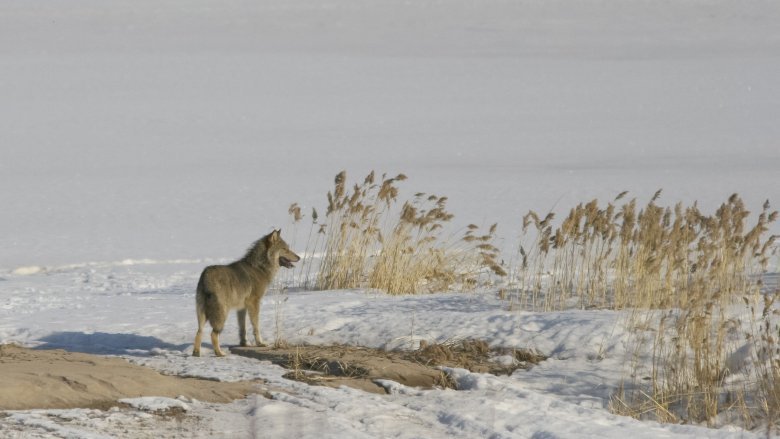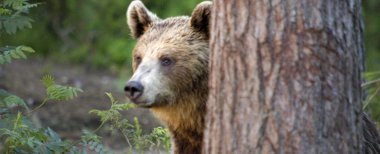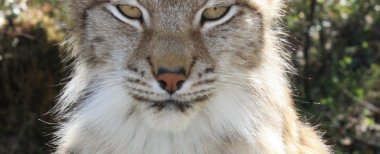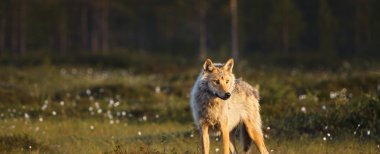latest news
GPS collaring provides extensive and useful information on wolves

In its meeting on 26 February 2019, the working group preparing the Management Plan for the Wolf Population discussed GPS collaring of wolves and communications related to wolves. The working group stressed the importance of collaring in gathering important data for population estimates and research. Collaring also provides citizens with necessary information, particularly in areas with new wolf populations, and helps to prevent attacks on hunting dogs, for instance.
The Riistahavainnot.fi shows the geographical location data of collared wolves in 5 x 5 kilometre cells from August through the end of February. The main goal of providing the location data is to prevent attacks by wolves on hunting dogs during the hunting season. The data also helps in the protection of livestock.
The Natural Resources Institute Finland (Luke) has been collaring wolves since 1998. Collaring is an essential tool in wolf research. The collars support population monitoring and its development and provide important information on wolves’ movement, predation and choice of habitat. Information about wolves’ predation behaviour can be further utilised in multi-species population management. The data obtained from collaring is also used in studies about population ecology and attacks on hunting dogs.
GPS collaring requires a great deal of resources, and there are strict requirements for its implementation. In addition to several different permits, successful collaring also requires suitable weather and snow conditions and approval from local operators. With this in mind, the working group emphasised the role of cooperation in the planning and implementation of collaring.
This year, provided that the weather is suitable and the other conditions are fulfilled, the Natural Resources Institute Finland aims to collar wolves in Eastern Finland and in North Ostrobothnia in Western Finland. Following a proposal from the Ministry of Agriculture and Forestry, Parliament allocated EUR 300,000 in additional funding in its 2019 budget for research and monitoring of wolves in Western Finland. The funds will be used for example for collaring efforts in Western Finland.
Communication about wolves plays integral role
The working group also discussed the importance of communication related to wolves. People’s interest in wolves and news about them was emphasised as a positive aspect of wolf-related communication. Communication also faces challenges, however, due to conflicting views on wolves in society. Inaccurate information and rumours, including false claims about transplantation of wolf populations, often find their way into the public discussion on wolves.
The working group emphasised the continued importance of communicating about wolves in a clear and informative manner. Communication about wolves plays an important role in promoting the coexistence of people and wolves. The working group stressed that in order to support this goal, communications are needed about the role of the wolf for the ecosystem and the need for cooperation in conflict resolution.
Communication and information about wolves must reach a very large audience, including people living in wolf territories, various stakeholders and concerned organisations. It is also important to communicate proactively and ensure that information takes root in areas that may become wolf territories in the future. The role of an interactive, bilateral approach to discussions was also emphasised.
The working group stressed the importance of face-to-face communication when dealing with topics related to wolves. They brought up the possibility of using new communication methods, like online town halls or question hours. They also discussed the opportunities presented by social media, as it can reach many different target audiences and provide a platform for discussions and exchange of information about wolves. Social media also comes with its own challenges, however, as polarised discussions do not leave room for different views, and people often resort to inappropriate language.
Read more:
Trapping of wolves for collaring and the required permits, Natural Resources Institute Finland (in Finnish)
Information on wolves and other large carnivores is available on the largecarnivores.fi
News archive
Information on large carnivores in Nordic countries
SKANDULV - wolf research in Scandinavia. SKANDULV is working on issues connected with wolf ecology and administration. The main questions concern wolf populations, movement patterns, genetics, ecosystem effects etc.


